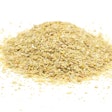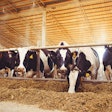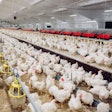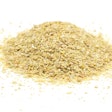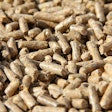
I just finished a conversation with a consulting client who wanted to find out if they could use an “innovative” industrial byproduct (waste) in feeds for animals. The exact nature of the product, the industry, and the type of feeds is irrelevant. The point is that by using such waste material, savings of substantial nature could be achieved in feed formulas for a number of farmed animals. In fact, the initial typical nutrient analysis of this waste material didn't look bad, although I would have asked for more had I not been disgusted to begin with.
So, when I learned how this material was produced, I could not help myself asking my client whether they would be happy for their families to consume meat, eggs and milk from animals eating such waste material. They answered they would rather not! Don’t do it, then, was my immediate answer. There is no need to explore things that you would not want to end up on your plate, I continued. Perhaps this is already happening and we do not know it, but let’s not knowingly continue this practice.
There is no need to explore things that you would not want to end up on your plate.
My second question to my customer, to make them think beyond energy-protein and feed cost, was whether they would feel comfortable for their proposal to reach the likes of CNN and BBC. Would they be happy to explain how innovative they were being by turning something disgusting into human food, or would they call it “fake news”? Perhaps this specific waste material was going to be innocent after all — it was just disgusting beyond belief. But would you be proud explaining to the general public how it ended up being fed to animals that produce their meat, eggs and milk? It is not like we do not have enough publicity issues to address!
Once I asked a company from which I was buying an expensive ingredient why they never failed me (I was testing the product regularly without them realizing I knew what to look for in it). They told me, simply, “Why cheat you when we could still make a profit selling top-quality, as agreed in the first place?” I am still impressed, and I still work with them!











